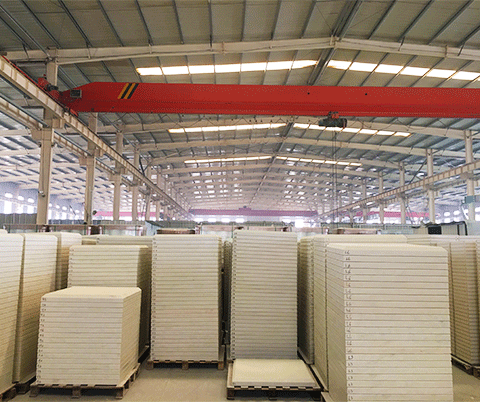loading...
- No. 9, Xingyuan South Street, Dongwaihuan Road, Zaoqiang County, Hengshui, Hebei, China
- admin@zjcomposites.com
- +86 15097380338
- Welcome to visit our website!
Advanced Filtration Solutions for FRP Vessels in Water Treatment Applications
Understanding FRP Filter Vessels A Comprehensive Overview
FRP (Fiber Reinforced Plastic) filter vessels are critical components in various industrial applications, providing efficient filtration solutions while maintaining durability and resistance to corrosive environments. These vessels are particularly useful in water treatment, chemical processing, and other sectors where conventional materials may fail due to corrosion, pressure, or temperature extremes. This article delves into the construction, benefits, applications, and considerations of FRP filter vessels.
Construction of FRP Filter Vessels
FRP filter vessels are constructed using a composite material that combines a polymer matrix with reinforcement fibers. The most commonly used fibers are glass, but carbon and aramid fibers are also employed for specific applications where additional strength or thermal performance is required. The polymer matrix is typically made from materials such as epoxy, polyester, or vinyl ester, selected based on the operational environment and required chemical resistance.
The manufacturing process often involves techniques such as filament winding, where continuous strands of fiber are coated with resin and wound around a mold to create a cylindrical structure. This method ensures that the fibers are aligned optimally along the vessel's length, providing enhanced strength and pressure resistance. Once the resin cures, the result is a lightweight but robust vessel capable of withstanding considerable stress and harsh conditions.
Advantages of FRP Filter Vessels
1. Corrosion Resistance One of the primary benefits of FRP vessels is their exceptional resistance to corrosion. Unlike metal vessels, which can degrade over time when exposed to harsh chemicals or saline environments, FRP vessels can withstand a wide range of chemical substances without significant loss of integrity.
2. Lightweight FRP materials are significantly lighter than their metal counterparts. This reduced weight facilitates easier transportation and installation, particularly in installations where weight is a consideration, such as offshore platforms or elevated structures.
3. Customizability FRP filter vessels can be engineered to meet specific requirements. This includes customizing dimensions, shapes, and coatings to handle particular types of chemicals or operational pressures, ensuring that the vessel is fit for purpose.
4. Thermal Insulation The composite nature of FRP provides good thermal insulation properties. This can be advantageous in applications where temperature control is critical, helping to maintain the required conditions within the vessel.
frp filter vessel

5. Longevity and Low Maintenance With their resistance to corrosion and staining, FRP vessels typically require less maintenance and have a longer operational lifespan compared to traditional materials. This can lead to significant cost savings over time.
Applications of FRP Filter Vessels
FRP filter vessels find applications across a variety of industries
- Water Treatment In municipal and industrial water treatment plants, FRP vessels are used for the filtration of water and wastewater, helping to remove contaminants and ensure compliance with regulatory standards.
- Chemical Processing The chemical industry utilizes FRP vessels for the storage and filtration of corrosive substances, providing a safe and durable solution that enhances process efficiency.
- Oil and Gas In oil and gas operations, especially offshore, FRP vessels are employed for separating and filtering various fluids due to their resistance to harsh environmental conditions.
- Food and Beverage FRP vessels are also suitable in the food and beverage industry where hygiene and cleanliness are paramount, ensuring that no harmful substances leach into the processed goods.
Considerations When Using FRP Filter Vessels
While FRP filter vessels offer many advantages, there are several considerations to keep in mind. The selection of the right resin and reinforcement material is crucial, as different chemicals may require specific formulations to ensure compatibility. It’s also essential to conduct regular inspections for any signs of wear or damage, even though these vessels are generally low maintenance.
In summary, FRP filter vessels present a versatile and effective solution for filtration needs across various industries. Their benefits, including corrosion resistance, lightweight design, and customizability, make them a preferred choice for many applications. By understanding the characteristics and proper usage of FRP vessels, industries can optimize their filtration processes while ensuring safety and compliance.
-
GRP Structures: The Future of Lightweight, High-Performance EngineeringNewsJun.20,2025
-
FRP Water Tank: High-Performance Storage for Corrosive and Clean Water SystemsNewsJun.20,2025
-
FRP Square Tube: The New Industry Standard for Chemical and Structural ApplicationsNewsJun.20,2025
-
FRP Pultruded Profiles: The Ultimate Choice for Lightweight Structural StrengthNewsJun.20,2025
-
FRP Handrails: The Safer, Smarter, and Stronger Choice for Modern InfrastructureNewsJun.20,2025
-
FRP Grating: The Smart Solution for Durable, Lightweight Industrial FlooringNewsJun.20,2025
-
Why Choose a Galvanized Water Tank for Your Storage NeedsNewsMay.21,2025
